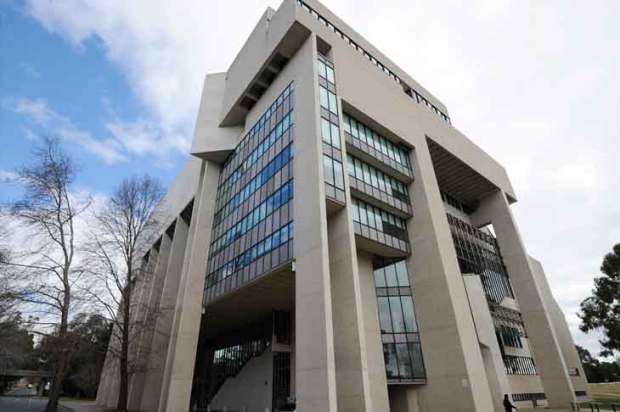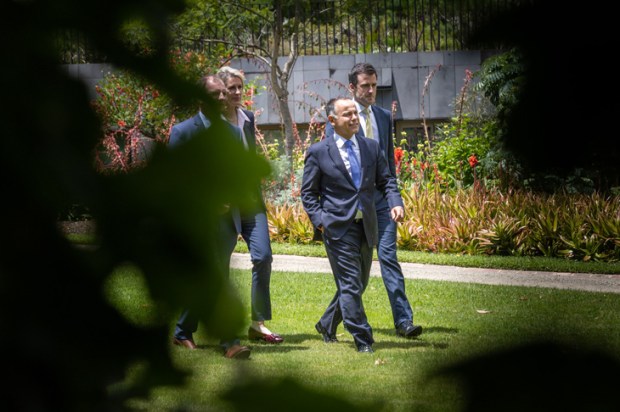Last week the Australian newspaper reported on how even the Albanese Labor government is very worried about what new cases might be decided by the High Court as regards those presently in indefinite detention. You’ll recall that earlier this year our High Court in the NZYQ case unanimously overturned a precedent of two decades, the Al-Kateb case. That earlier Al-Kateb case had ruled that in some circumstances the Minister could authorise indefinite detention of non-citizens who could not be removed (or chose not to go) and who had come here as unauthorised arrivals.
Let me make a few initial points about this. First off, and laying my cards on the table, back in 2004 I wrote a peer-reviewed law review article just before arriving in this country arguing that the majority decision in Al-Kateb was correct. I still think that. And yes, that means that I believe the recent NZYQ High Court decision is wrongly decided, badly wrong, unanimity of the current High Court notwithstanding. As readers might guess taking that position put me in a very tiny minority in the legal academy even two decades ago – not unlike being openly for No in the Voice referendum last year. The left-wing, ‘progressive’ sentiments that wholly dominate law schools in this country, and around the Anglosphere, basically despise any legal measures that protect borders. (See Britain. See the US.) That loathing by the lawyerly caste – because it extends beyond the legal academy – goes into over-drive when it comes to indefinite detention. But the question is a legal one. It is not, ‘Do we like indefinite detention?’ or, ‘Would we do this were we the elected branches?’. The question is simply whether the Australian constitution affords this power to the elected government of the day. Today’s top judges overruled a majority of the top judges from twenty-odd years ago on that though nothing about the constitution had changed. Just the composition of the top court.
Secondly, readers need to realise that our written constitution – at the time of its drafting and approval and ratification – was incredibly democratic. It explicitly left big calls to the elected branches. You can find near on a dozen references in it to ‘until the Parliament otherwise provides’. Yes, ours is the written constitution that probably copied more from the American one than any other on earth. But it explicitly rejected rule by judges that comes with a bill of rights. The top judges were there to police the federal division of powers. Yet here is the irony. On their main job of overseeing the federalist division of powers our Hight Court since 1920 has been a complete failure. The basic betting rule is, ‘If it’s important the High Court will give the win to the centre’. We have the most centralising court in the federalist world. Only our states in Australia have had their income tax powers (in practice, if not wholly in theory) taken away from them. We have world’s worst vertical fiscal imbalance as a result and no incentives for states to perform. The interpretive approach the top judges invented and use to decide these matters allowed them to decide the WorkChoices case for the centre as well as the Tasmanian Dam case. The feds would have been laughed out of court in both in my native Canada. And in the US. The result is we get none of the myriad benefits of competitive federalism – real federal democracies are wealthier than unitary states and they have fewer public servants per capita too. But we do get this mendicant second layer of governments. It’s the worst of both worlds. And it was brought to you by our High Court. Personally, I do not believe it is now fixable as the one thing Malcolm Turnbull ever did that I agreed with was to offer the states income tax power – the first step in any fix – and even the Liberal premiers turned him down. Apparently you get used to being a beggar going cap in hand to Canberra.
But while doing that our top judges also created doctrines that none of the drafters or ratifiers or anyone else at the time of federation would ever have imagined or believed they were creating with our constitution. One is the so-called implied freedom of political communication which I believe to be wholly made-up by the High Court and which functions as a sort of enervated bill of rights-type limited doctrine that sees our top judges indulge in Canadian/European proportionality analyses. But we don’t have a bill of rights and no one here actually asked the top judges to tell us whether they think some law is reasonable, justifiable and proportional. They simply gave themselves the job – and for those who don’t know, the few times our top judges actually invalidate a statute using this it is virtually always Liberal leglislation, not Labor legislation.
The other main doctrine that was judge-made is known as the separation of powers doctrine. The idea is that there is a clear division between what judges and the elected branches can do. I’ll be blunt. This doctrine does not exist in Canada and I do not believe that Australians are any more free or better off because it exists here. Nor does it exist in Britain or New Zealand. The same point applies. It was this separation of powers doctrine that was in play in Al-Kateb and in NZYQ. Effectively, the recent case has taken more off the democratic table than what the judges of two decades ago thought proper.
And so a key thing that is scaring the daylights out of the Albanese government (and should scare the rest of us) is that where criminals and terrorists from countries that don’t accept involuntary returns manage to get to Australia in some unauthorised way, and there is no realistic prospect for them to be forcibly removed, they cannot be indefinitely detained anymore as they could while Al-Kateb was the ruling precedent. They can now only be detained for as long as it reasonably takes to complete the visa processes. Do the members of our present High Court understand the concept of deterrence? Because what they have done is to create a really strong incentive to attempt to enter this country. Get here and sooner or later – post NZYQ make that sooner – they will have to be released. Regardless of the horrors they have committed at home. Because the judges firstly imposed this interpretively implausible separation of powers framework on our written constitution and then, earlier this year, used it in a potent way that the judges of two decades ago rejected. Great!
Last point. Over half the current High Court justices were appointed by the Coalition. Heck, three Brandis appointments were in the majority in the woeful Love case, possibly the worst reasoned constitutional case I have ever read in 25-odd years of reading constitutional cases from around the Anglosphere. The single most important trait in appointing judges today, if you are a right-of-centre government, is to pick people who are brave; people who can withstand being socially shunned by the other judges or not getting an invitation to the law schools or law firms or NGOs where honouring the most progressive judges is a fact of life. Heck, this is a bog standard part of life for all openly conservative academics in this country today. It’s surely not too much to expect Coalition appointees to the top court to stand up for interpretively conservative outcomes largely in keeping with the intended meaning of the ratifiers, however socially awkward.
Meantime, even the Albanese government is scared of what this current court might have unleashed.
Got something to add? Join the discussion and comment below.
Get 10 issues for just $10
Subscribe to The Spectator Australia today for the next 10 magazine issues, plus full online access, for just $10.
You might disagree with half of it, but you’ll enjoy reading all of it. Try your first month for free, then just $2 a week for the remainder of your first year.














Comments
Don't miss out
Join the conversation with other Spectator Australia readers. Subscribe to leave a comment.
SUBSCRIBEAlready a subscriber? Log in